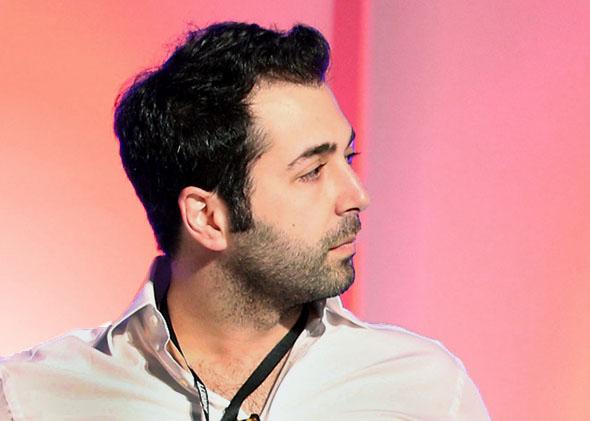A few months ago, I called up Tinder co-founder and chief marketing officer Justin Mateen to talk about women. I wanted to figure out how Tinder—birthed by a group of tech dudes and incubated in a startup accelerator—had grown to become the first hookup app to gain widespread acceptance and even excitement among women. “We didn’t look at men and women as different,” Mateen told me. “We looked at humans in general.” Most hetero dating sites, suffering from a surplus of male users, have bent over backward to telegraph their appeal to women. Not Mateen, who wasn’t interested in engaging in a discussion of gender at all. Tinder is “a social discovery platform for facilitating a connection between two people,” he told me. Tinder doesn’t “discriminate against anyone,” he said. It’s not about “male versus female.” It “just allows you to be you.”
Tell that to Whitney Wolfe, Tinder’s former VP of marketing. Wolfe filed a lawsuit on Monday against Tinder and its majority owner, IAC, alleging that Mateen and Tinder’s other executives engaged in “atrocious sexual harassment and sex discrimination” against her. Wolfe says that they belittled her contributions, boxed her out of her status as Tinder co-founder, subjected her to public and private sexual harassment, ignored her complaints about the abuse, and then fired her.
When I talked with Mateen about how he managed to attract women to the app in its early days, he didn’t mention Wolfe. A February GQ profile of Tinder identifies only Mateen, Tinder CEO Sean Rad, and app engineer Jonathan Badeen as the company’s co-founders. Wolfe, meanwhile, is painted as something of a sorority whisperer, the 24-year-old woman tasked with signing up “hot sorority girls” for the service, then enticing men with their alluring photos. But in the suit, Wolfe argues that she was integral to Tinder’s success from its infancy. She says she “aggressively” lobbied Rad to “shift the focus of the group” away from mobile commerce app Cardify and onto its dating platform, coined the name Tinder, and cooked up the initial marketing plan for shopping the app to communities of high-status college students. By late 2012, Wolfe says, she was acknowledged as a co-founder in internal company meetings and communications, and “routinely held out as the face of the company” to mine “positive press” for the app.
It was around then that Mateen joined Tinder as its CMO and as Wolfe’s direct supervisor. Soon, the suit says, Mateen began pursuing a romantic relationship with Wolfe; when their relationship turned rocky, Wolfe says that she had to contend with both sexual harassment from Mateen and belittling behavior from Rad. Mateen, Wolfe says, called her a “whore,” a “gold digger,” and a “disease” at a company party, threatened to fire her if she didn’t continue a romantic relationship with him, and routinely sexually harassed her on the clock. After reporting the behavior to Rad, Wolfe says that she was told it was her job to “keep Justin calm.”
Meanwhile, when “Tinder-related articles appeared in more traditional business outlets, Wolfe’s name was often nowhere to be seen,” the suit claims. “When she would ask why only her name of the five founders was absent they would tell her ‘you’re a girl.’ They stated that they couldn’t include her name in the business press, because it ‘makes the company look like it was an accident.’ ” Worse, showcasing “a female co-founder of Tinder” looked “slutty,’” the suit claims Mateen told her. When one publication proposed a profile of Wolfe, the suit claims that Mateen said Wolfe was only interesting to journalists as a potential sex partner. Ultimately, Wolfe says, she was bullied into resigning from Tinder.
It’s funny: When I talked with Mateen this spring, I came away feeling like Tinder’s success among women had been a total fluke. Before Tinder, naysayers claimed that hookup apps would never find success among straight women. Then, all of a sudden, a group of guys came along and broke that barrier without seeming to consider the wants and needs of women at all. In light of Wolfe’s suit, it seems clear that Tinder’s success among women was no accident. A woman had been on the ground floor all along, until her work was diminished and covered up.
And Wolfe isn’t the only woman who’s seen her contributions to the tech world tokenized and then dismissed. When I interviewed a half-dozen women in the industry about male-dominated startup culture, they told me that they’re routinely tapped to provide a female perspective to an in-development app, but that the “opportunity” rarely comes with a share of the credit or the profit. “Every day I get several emails offering to do one of my least favorite things: ‘Pick my brain,’ ” tech consultant and entrepreneur Cindy Gallop told me. “I have to write back very nicely and explain that they can pay me to do that work.” One startup guy offered journalist Ann Friedman, who’s written at length about how apps can better appeal to female consumers, a consulting fee of $8 an hour.
Tech consultant Ashe Dryden told me a similar tale. “Upon telling [developers] that I’m happy to draw up a contract, I either don’t hear from them again, or they get upset because I’m ‘trying to profit off it,’ ” she says. Dryden is usually happy to provide her input for a fee, but “I’ve turned down clients because I feel they’re doing it more as a defense mechanism or to get a free pass from the community,” she says. “They don’t actually care about increasing diversity or creating a safer, more inclusive space.”
Male-dominated startups are beginning to realize that they need female partners and consumers in order to make a profit. But as the suit against Tinder shows, they’re still not too interested in sharing the wealth.
